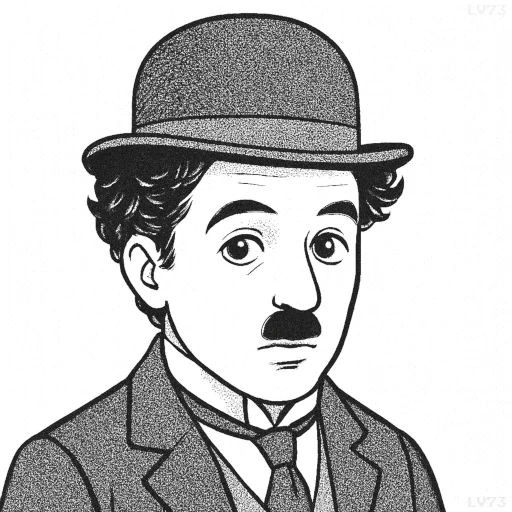“Why should poetry have to make sense?”

- April 16, 1889 – December 25, 1977
- British
- Comedian, film actor, director, screenwriter, composer
table of contents
Quote
“Why should poetry have to make sense?”
Explanation
This quote from Charlie Chaplin touches on the liberating and often nonsensical nature of artistic expression. Chaplin, who was both a filmmaker and a performer, understood that creativity does not always need to adhere to logic or structure to be powerful. By questioning why poetry must “make sense,” he advocates for the idea that art—whether in the form of poetry, film, or comedy—should be allowed to express the irrational, the emotional, and the abstract. Chaplin was not just a master of slapstick comedy but also a storyteller who often infused his works with deep, poetic elements that transcended logical explanation, drawing on visual metaphors and emotional resonance rather than straightforward narrative.
The quote is a challenge to traditional expectations about meaning in art. Poetry, like other forms of expression, can convey feelings, moods, and experiences that are often beyond the reach of simple logic. Chaplin’s own films—especially those that combine humor with poignancy—illustrate this idea, where his character’s struggles and emotional moments don’t always need to “make sense” to have a profound impact on the viewer. For example, in films like City Lights (1931), there is a poetic quality to the way Chaplin uses silent gestures and physical comedy to express deep themes of love, loss, and social injustice, without relying on conventional dialogue or “sense.”
In modern times, this quote speaks to the growing appreciation for abstract art and the movement away from rigid definitions of what constitutes good or valuable creative work. In a world where the interpretation of art is subjective, Chaplin’s words encourage artists to break free from the constraints of logic and reason, and to explore the emotional and intuitive side of creativity. Whether in poetry, music, or visual arts, the idea that art does not always have to make sense allows for greater freedom, spontaneity, and personal expression—qualities that Chaplin himself embodied throughout his career.
Would you like to share your impressions or related stories about this quote in the comments section?




